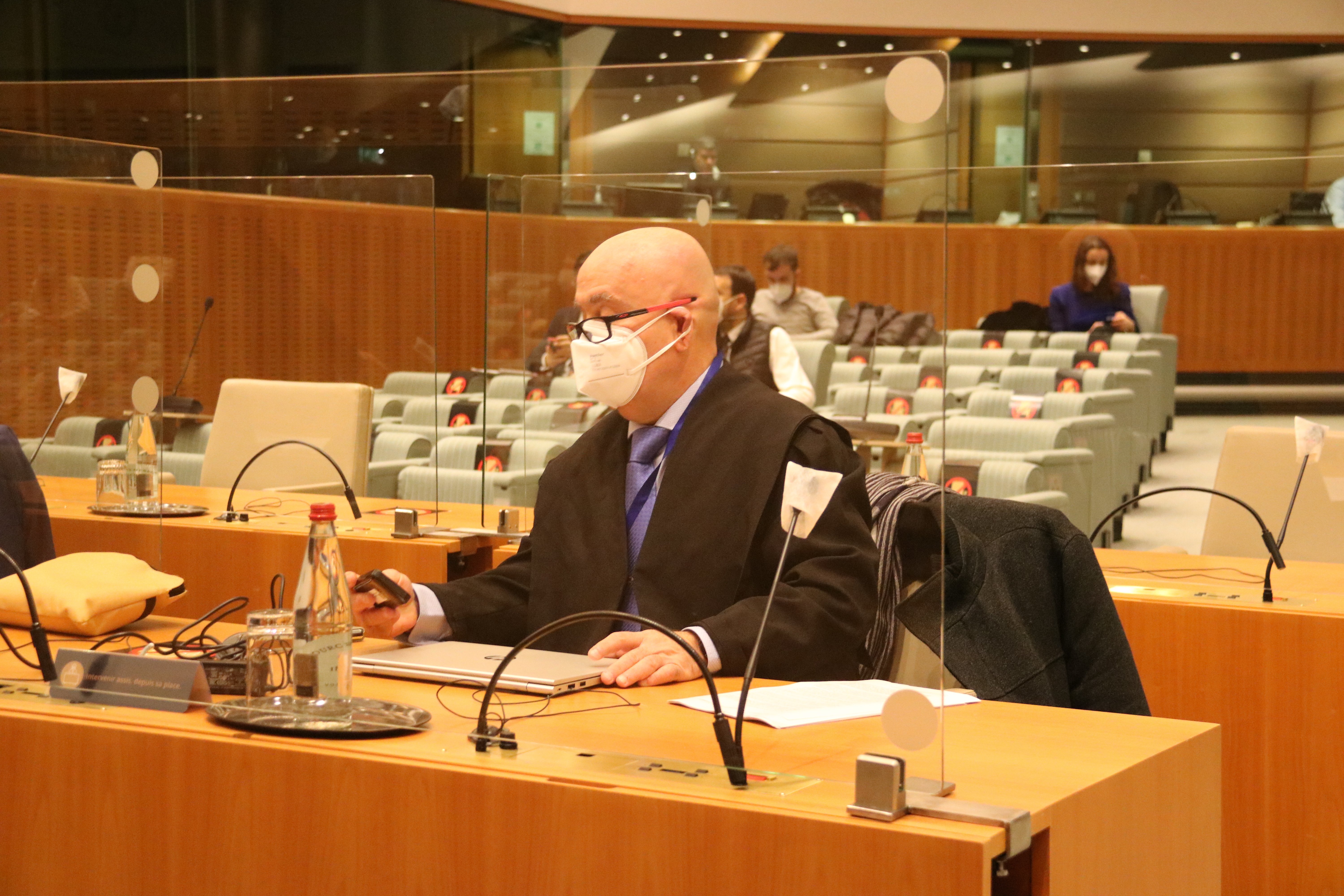The EU General Court (EGC) has today held a hearing on the appeal lodged by MEPs Carles Puigdemont and Toni Comín against the decision of the European Parliament, under then-president Antonio Tajani, to prevent the exiled Catalan politicians from taking possession of their seats after being elected in the 2019 European elections. The European Parliament argued that the situation was difficult, while the Spanish state solicitor at the EU gave the view that the damage has already been rectified, and asked for the case to be dismissed. On the other hand, lawyer Gonzalo Boye, representing the pro-independence politicians, denounced that Tajani's decision was based on political interests and therefore demands reparation. Puigdemont and Comín were not present at the hearing.
Boye, who commented that the questions raised during the hearing show that the judges know the case in great detail, warned that there is no legal explanation for the decision taken by Tajani, whose party, Forza Italia, is part of the same European Parliament group as Spain's Popular Party. "When there is no legal explanation, there can only be politics, and the interconnection between Tajani and his associates and comrades in Spain was clear," he said.
Asked if the EGC's ratification of the Puigdemont and Comín seats could have any effect on the remaining issues of the two Catalan politicians before the Luxembourg courts, outstanding among them, the resolution on their immunity, Boye's two-word reply was : "Domino effect".
Six months until they could take office
In May 2019, Tajani refused to recognize the MEP status of the two exiled pro-independence politicians and did not allow them to enter the Parliament building like the rest of the elected deputies. As the Luxembourg court did not accept the interim measures that the politicians requested at that time, they were also unable to attend the constituent session of the house at its Strasbourg chamber on 2nd July, although they had announced that they would attend and the Catalan independence movement had organized a major rally to support them outside the chamber. Eventually, however, Puigdemont and Comín did not cross the border into France to avoid arrest and remained eight kilometres from Strasbourg, on German territory.
The two pro-independence politicians failed to obtain their status as deputies until the European Court of Justice ruled on December 19th that Oriol Junqueras, who led the ERC candidacy in the EU elections, had been protected by parliamentary immunity from the moment that he was declared elected to the European Parliament and should have been released from prison - where he was being held on remand while the Supreme Court reached its verdict on the rebellion charge against him - to go to Brussels and take possession of his seat. The day after that ruling, Puigdemont and Comín appeared at the Parliament in Brussels to collect their provisional credentials. On 13th January 2020, the two MEPs took office in the full session of the European Parliament.
Cancelling Tajani's instructions
In their appeal, the Catalan MEPs called for an annulment of the instructions that prevented them from taking office and of Tajani's decision to refuse to acknowledge the election results, as well as the statement in which he left their seats vacant, and the refusal to allow them to take possession of the seats, among others.
During the hearing this Friday morning, the European Parliament's legal representative admitted that the Parliament was in a "difficult situation" with regard to Puigdemont and Comín's claim to their seats. Lawyer Niklas Göerlitz reiterated that their names were not on the list sent by Spain's Central Electoral Commission giving the names of Spanish MEPs who had completed the formalities.
Beyond the ruling which the General Court will deliver on this case, European justice has yet to set a date for the other pending hearings: the appeal of the Junts MEPs against the chamber's March 2021 decision to withdraw their parliamentary immunity as well as the preliminary questions presented by Spanish investigating judge Pablo Llarena aimed at clarifying the valid reasons which an EU country can argue to reject a European Arrest Warrant.
In the main image, lawyer Gonzalo Boye prior to today's hearing in Luxembourg / ACN

